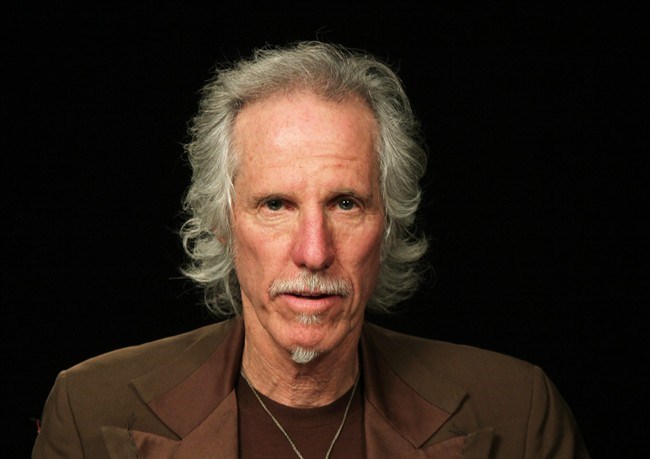NEW YORK, N.Y. - Former Doors drummer John Densmore keeps the spirit of Jim Morrison alive in his new book, "The Doors Unhinged: Jim Morrison's Legacy Goes on Trial."
The 68-year drummer is no stranger to chronicling his former band. He wrote The New York Times bestseller, "Riders on the Storm" in 1991.
The new book defends Morrison's stand against commercializing the band's music catalogue. Keyboard player Ray Manzarek and guitarist Robbie Krieger considered selling the rights to a Doors song for a television commercial. Densmore wouldn't go along with it. He won a lawsuit that says his former bandmates must agree unanimously to any use of the Doors name.
Densmore sees himself as the keeper of Morrison's legacy and feels the singer would never sell the rights to his songs for commercial use.
Morrison died in 1971 as a member of the infamous "27" club. Recording artists that passed away at that age include Jimi Hendrix, Janis Joplin, Kurt Cobain, and most recently, Amy Winehouse. And while the band had a relatively short career, their fallen lead singer continues to live on in the memory of fans.
Recently, Densmore talked about Morrison's intentions, struggles, and gift to the music world. He also spoke the singer's 1969 obscenity arrest in Miami. In 2010, 41 years after the incident, Florida Gov. Charlie Crist granted Morrison a posthumous pardon.
AP: You've already written about the Doors, so what are you trying to tell people in this new book?
Densmore: Jim had an uncompromising spirit that he cared about the catalogue. 'Come on Buick, light my fire' was something he said he would not do, and would smash a car on television to make my point. It's something I cannot forget. I'm pleased that he instilled in me that money is important, but not the most important... The book starts out with Jim screaming out the F-word, saying 'You guys want to change the meaning of "Light My Fire," you're crazy.' And he didn't write that song, primarily. He wrote: Our love become a funeral pyre. He added that one line that was missing. So he cared about the whole body of work.
AP: Did you see Jim Morrison spiraling out of control?
Densmore: Jim succumbed to alcoholism, the legal drug, which at the time we didn't have substance abuse clinics and we didn't know he had a disease, you know? I'm wondering if today like Eminem who is this angry, creative guy can put out an album called 'Recovery' maybe Jim could have done the same.
AP: The band wasn't on the same destructive path as Jim, so were you guys concerned?
Densmore: That was my cross to bear. I mean I found my path in music and I was being creative and was in a band with a self-destructive kamikaze Dionysus drunk and it was hard but I couldn't give it up because I knew that it was magic and I knew there was a big elephant in the room and I lobbied for about a year to get off the road, because in a studio you can stop. In front of 10,000 people you can't.
AP: There was controversy when you performed, most notably the Miami arrest.
Densmore: Jim did not expose himself at Miami, OK? He was drunk that night and very political and it was a mess musically but it was theatrical. At the time the country was polarized into for and against the Vietnam War... I think they wanted to get those grubby rock n' rollers. Those anti-establishment kids.
AP: What was special about seeing The Doors perform live?
Densmore: It was dynamic. If you get real dramatic and fortissimo and loud, then soft... We'd play 'Light My Fire,' and everybody would be dancing. Then we'd play 'The End,' and everybody would file out, quietly.
AP: What are you most proud of?
Densmore: I'm very proud that we broke the three-minute barrier with 'Light My Fire,' and 'The End.' 'When the Music's Over' is one of my ultimate favourites.
___
Online:
www.johndensmore.com
___
Twitter:
Follow John Carucci on Twitter at www.twitter.com/jacarucci



